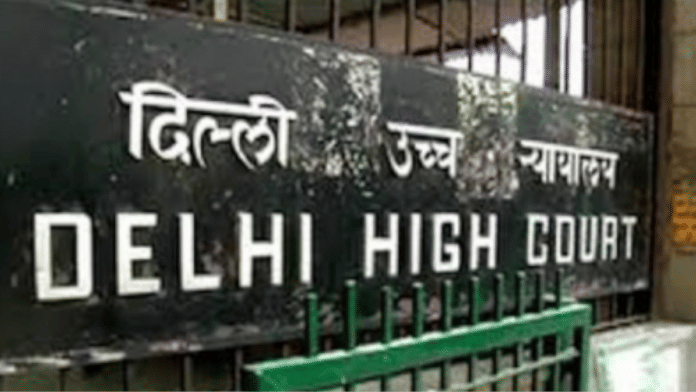New Delhi: Anyone who has been home-quarantined for more than 14 days but hasn’t tested positive for Covid-19 can approach the authorities challenging the extended restrictions, the Delhi High Court has said.
In such a case, Justice C. Hari Shankar ruled Monday, either the authorities would have to lift the quarantine or explain the reason for extending the quarantine period.
The court was hearing a petition filed by a Delhi man who came in contact with a pizza delivery agent who tested positive for coronavirus on 14 April. The petitioner, Amit Bhargava, came in contact with the agent on 24 March.
Any person who has been in contact with a Covid-19 patient has to be quarantined for 14 days because that is the duration of the coronavirus’ incubation period (the time it takes after transmission to manifest in symptoms)
A 14-day quarantine period from this date should have ended 7 April, Bhargava said, but he was instead quarantined with effect from 14 April, when the agent tested positive.
The court refused to hold that the period of home quarantine must stand limited to just 14 days in each and every case, but ruled that people were free to challenge extensions under certain conditions.
“…If any person, who does not display Covid-2019 symptoms, and has not tested positive for the Covid-2019 virus, is home-quarantined for over 14 days, he shall have a right to represent to the authorities against such continued quarantine and, if he so represents, the authorities would be bound either to lift the quarantine forthwith, or to explain, to the person concerned, as expeditiously as possible and without any undue delay, the reason for keeping him in home quarantine for over 14 days,” the court said.
Also Read: This 19-yr-old in Vadodara tested positive for Covid seven times, but never showed symptoms
‘Shouldn’t approach courts at the drop of a hat’
The petitioner was one of 72 people quarantined after they came in contact with the Delhi agent.
The court said that, “arithmetically and logically speaking”, the petitioner had a point in challenging the extended quarantine period.
It, however, added that “the Covid-2019 virus is, presently, not known to subscribe to the dictates either of arithmetic or of logic”.
The bench said courts should exercise caution in dealing with challenges to executive action as the country deals with Covid-19.
“In formulating, and implementing, its policy to deal with the Covid- 2019 pandemic, which has befuddled the entire global community, the executive administration is, similarly, traversing uncharted territory. The executive must, in such a circumstance, be afforded the requisite play in the joints, so as to formulate, and implement, its policy, as meaningfully and efficiently as possible,” it added.
“Absent any legal or constitutional infraction, therefore, courts have necessarily to be slow in subjecting executive action, taken in the context of the Covid-2019 crisis, to searching judicial scrutiny,” it said.
While examining cases filed by citizens alleging compromise of their civil and constitutional rights, courts should not adopt a “hyper-legalistic” approach, but be “pragmatic and practical” instead, the bench added.
“It is incumbent, on each one of us, to contribute our efforts in this direction, and to forbear from rushing to court, at the drop of a hat,” it said.
Also Read: 4am Dairy Milk, dancing prawns, langar — what coronavirus did to how we eat






